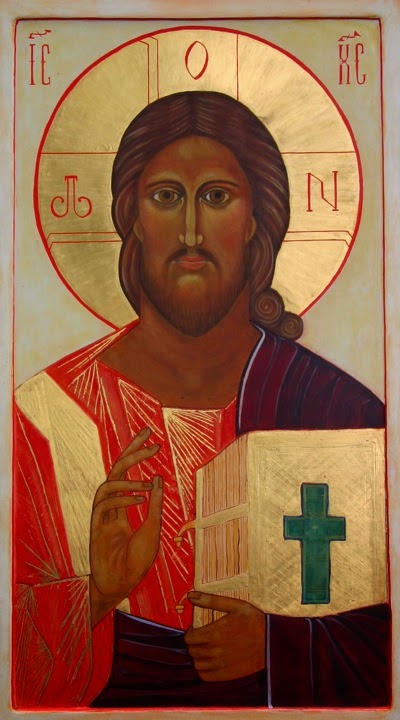June Trinity
John 4, 1-26
At this time the Lord became aware that it was
rumored among the Pharisees that Jesus was finding and baptizing more disciples
than John (although Jesus himself did not baptize, though his disciples did.)
Therefore he left Judea and went back again to Galilee.
Now he had to pass through
Samaria. So he came to a Samaritan town called Sychar, near
the plot of land Jacob had given to his son Joseph. Jacob’s well was also
there. Jesus was weary with the journey, and he sat down by the well. It was
about midday, the sixth hour.
Then a Samaritan woman came to draw water. And
Jesus said to her, “Give me to drink.” For his disciples had gone into town to
buy bread.
Then the Samaritan woman said to him, “How can you,
a Jew, ask a drink of me, a Samaritan woman?” For the Jews avoided all
contact with the Samaritans.
Jesus answered her, “If you knew how the divine
world now draws near to men, and who it is who says to you, ‘Give me to drink’,
you would ask him, and he would give you the water of life [the living water].
“Sir,” the woman said to him, “you have nothing to
draw with, and the well is deep. From where will you draw the living water? Are
you greater than our Father Jacob, who gave us this well and drank from it
himself, as did his sons and his flocks and herds?”
Jesus answered, “Everyone who drinks this
water will be thirsty again, but whoever drinks the water that I will give him,
his thirst will be quenched for all time. Indeed, the water I give him will
become in him a spring of water welling up as true life for eternity.”
The woman said to him, “Sir, give me this water,
that I may never be thirsty again, and need never come here again to
draw.”
He said to her, “Go call your husband and show him
to me.”
 |
| Samaritan Woman, He Qi |
“I have no husband,” she replied. Jesus said to
her, “You have well said that you have no husband. Five husbands you have had,
and he whom you now have is not your husband. This you have said truly.”
“Sir,” the woman said, “I perceive that you are a prophet. Our fathers worshipped on this mountain, but you Jews say that only in Jerusalem is the place where one should worship.”
“Sir,” the woman said, “I perceive that you are a prophet. Our fathers worshipped on this mountain, but you Jews say that only in Jerusalem is the place where one should worship.”
Jesus answered, “Believe me, o woman, the hour is
coming when you will worship the Father neither on this mountain nor in
Jerusalem. You worship a being you do not know; we worship what we do know.
That is why salvation had to be prepared for among the Jews. But the hour is
coming and has now come, when the true worshippers will worship the Father with
the power of the spirit and in awareness [knowledge] of the truth.”
Then the woman said to him, “I know that the
Messiah is coming who is called Christ. When he comes, he will teach us all
things.”
Jesus said to her, “I AM he who
stands before you and speaks to you.”
2nd Trinity Sunday
John 4: 1-26
Times of day have their qualities
– the joyful freshness of dawn, the quiet expansiveness of sunset. And in
between, the starry midnight ,
and the compressed starkness of midday .
When everything here stands in clear and objective relief. At noon everything earthly comes to the
foreground.
Christ’s
conversation with the woman at the well begins with earthly facts: with His very presence, with thirst, with history. But the conversation quickly expands so that the
earthly becomes an image of broader and higher spiritual facts. What He
discussed with Nicodemus in the realm of night he speaks of here openly, in
broad daylight with the Samaritan woman in day-waking consciousness. She
herself, her own inner state, becomes the content of this spiritual conversation.
The five
husbands of this woman of the day may well also refer to the leadership role
that her five earthly senses have played in her life. They have been important
in their own time and sphere. But Christ wants to indicate to her that she,
along with all of mankind is at an important juncture; for now, spirit and
truth, which exist also in a realm beyond the sensory, spirit and truth will
now be leading human beings. The same kind of clarity that noontime brings to
the earthly realm shall now shine forth into and from the realm of the spirit.
Day waking consciousness shall extend into the realm of the spirit. There we
will see the One who is to come, offering us the water of life.
 The
well of the water of life is dug deep in the earth. And even at
The
well of the water of life is dug deep in the earth. And even at 






